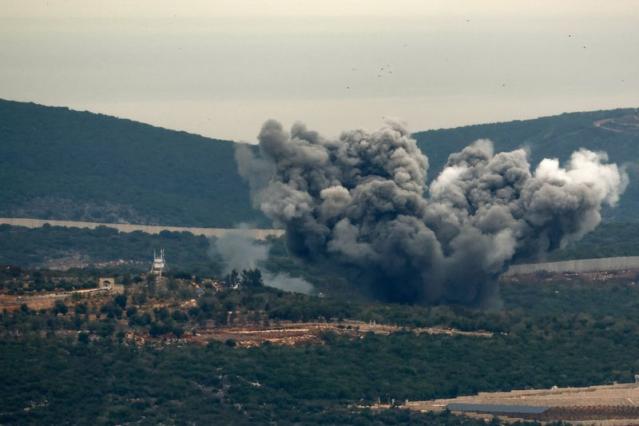The ongoing hostilities along the Lebanese Israeli border have intensified over the weeks, leading to an increase in casualties on both sides.
Two people in southern Lebanon were reportedly killed due to Israeli attacks on Monday, according to Hezbollah-allied Amal Movement.
There are concerns of a potential expansion of the conflict between Israel and Hezbollah, a Lebanese group backed by Iran.
Hezbollah has been engaged in a reciprocal exchange of fire with Israeli forces since Hamas began conflict with Israel on October 7.
These exchanges are the most violent conflict at the border since the 2006 war between Israel and Hezbollah that lasted a month.
The current conflict has resulted in the deaths of over 70 Hezbollah fighters and 10 civilians in Lebanon, along with seven soldiers in Israel. Furthermore, Thousands more on both sides have fled shelling.
Israel has expressed its intention to avoid a war on its northern front as it focuses on defeating Hamas in the Gaza Strip,according to Reuters.
On the other hand, sources close to Hezbollah suggest that their attacks are strategically planned to engage Israeli forces without triggering all-out war.
Despite the U.S.’s efforts to prevent the conflict from spreading in the region by sending two aircraft carriers as a deterrent to Iran, the escalating discourse and tensions between Hezbollah and Israel persist.
On Saturday, the leader of Hezbollah, Hassan Nasrallah, stated that the front in Lebanon would “remain active”. He also noted a “quantitative improvement” in the group’s operations.
During a press conference on Saturday, when questioned about Israel’s red line, Israeli Defence Minister Yoav Gallant responded, “if you hear that we have attacked Beirut, you will understand that Nasrallah has crossed that line.”


